MercoPress. South Atlantic News Agency
Tag: Mexico
-
Friday, October 24th 2014 - 20:13 UTC
Pacific Alliance and Mercosur have “a shared vision of regional integration”
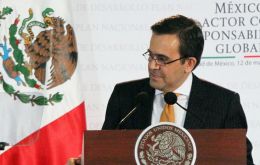
Pacific Alliance and Mercosur country members will be holding a meeting in Colombia “to plan the productive future of Latin America with a shared vision” announced Mexico's minister of economy Ildefonso Guajardo.
-
Tuesday, August 12th 2014 - 06:05 UTC
Mexico signs energy reform bills: now to wait for interested private companies
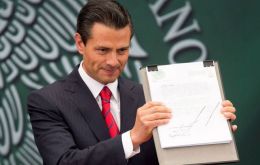
Mexican President Enrique Peña Nieto signed on Monday a package of landmark energy reform bills, ending the 76-year-old state monopoly on oil drilling and reopening the sector to foreign companies.
-
Wednesday, July 30th 2014 - 07:33 UTC
Leading universities from Argentina, Brazil and Mexico sign cooperation agreement
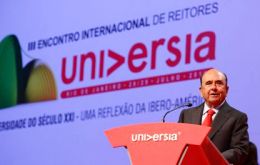
The presidents of the University of Buenos Aires, (UBA), the National Autonomous University of Mexico, (UNAM), and the University of Sao Paulo, (USP), on Tuesday signed a cooperation agreement governing the recognition of titles, student exchanges and cooperation in finding financing sources.
-
Monday, July 14th 2014 - 23:03 UTC
Mexico rapidly overtaking Brazil as Latam's leading auto producer
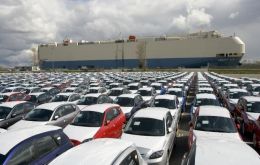
Pacific Alliance member Mexico is poised to overtake Brazil, the leading economy in Mercosur, as the top Latin American auto producer for the first time in more than a decade as surging exports to the U.S. spur factory openings and record output.
-
Tuesday, July 1st 2014 - 23:16 UTC
Could gang violence end Mexico's shale dream?

Violence in Mexico could thwart hopes of a budding shale boom, as oil and gas companies operating in Texas may think twice about moving south of the border.
Mexico holds an estimated 545 trillion cubic feet of technically recoverable shale gas and 13 billion barrels of shale oil, but progress in developing those resources has been slow. -
Wednesday, June 4th 2014 - 08:58 UTC
Mexico's Pemex sells its majority stake in Repsol over management disputes
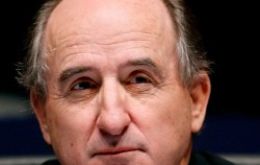
Mexico's state-owned oil giant Pemex has sold the majority of its stake in Spanish energy firm Repsol for approximately 2.2bn Euros with the intervention of Citigroup and Deutsche Bank. Pemex has been a shareholder in Repsol for more than 25 years.
-
Thursday, April 10th 2014 - 05:37 UTC
China has become Latam's banker loaning 102bn dollars from 2005 to 2013
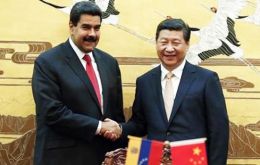
China loaned 102 billion dollars to Latin America between 2005 and 2013, mainly to Venezuela and Argentina, while Mexico seems to be going the same way, according to a release from the Global Economic Governance Initiative which depends from the University of Boston.
-
Thursday, February 20th 2014 - 04:11 UTC
North American partners meet to celebrate NAFTA 20 years, but the agenda has many frictions
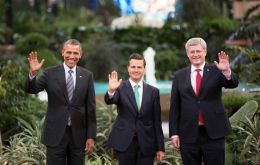
US President Barack Obama joined the Mexican and Canadian leaders Wednesday for a North American summit focused on trade but marked by friction between the “three amigos”. Mexican President Enrique Peña Nieto shook hands with Obama in an ornate state government palace in Toluca, near Mexico City, for private one-on-one talks before Prime Minister Stephen Harper joined them later.
-
Saturday, February 15th 2014 - 10:24 UTC
Brazil, the most dangerous country for Latam journalists, according to RSF

More than 20 years after the fall of the dictatorships and civil wars that dominated Latin America, the region continues to be marked by a strong retaliation against the press, according to Reporters Without Borders, RSF, most recent annual index on the state of press freedom, which was published on Feb. 12.
-
Friday, December 13th 2013 - 09:04 UTC
Mexico breaks 75-year myth: opens energy sector to private and foreign investment
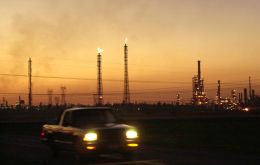
Mexico's Congress approved on Thursday early morning a historic energy reform aimed at luring foreign investment and ending the state's 75-year-old oil monopoly following a heated debate. After a marathon session that lasted nearly 24 hours, the lower house voted 353 to 134 for the legislation championed by President Enrique Peña Nieto, one day after it passed the Senate.
